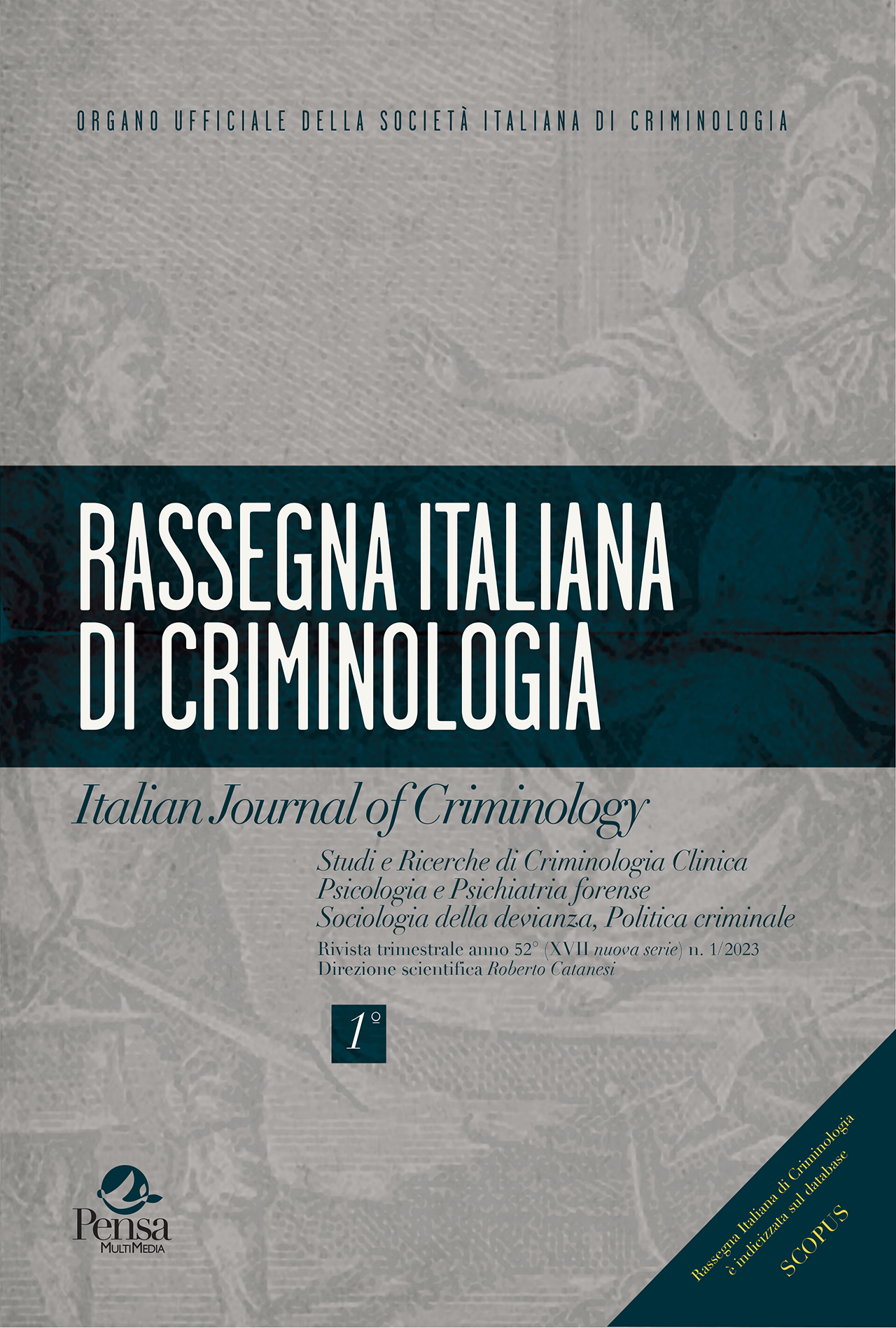Italian “revolution” of forensic psychiatric hospitals: an observational study on advancements, difficulties and outcomes
DOI:
https://doi.org/10.7347/RIC-012023-p5Abstract
The debate about utility and reformation of Forensic Psychiatric Hospitals is rising in some coun-tries. In Italy, over the last ten years a forensic hospital abolition movement led to the closure of the six high security forensic psychiatric hospitals (Ospedale Psichiatrico Giudiziario - OPG) and their conversion to a residential model of care based on High-Security Forensic Psychiatric Resi-dences (Residenza per l’Esecuzione delle Misure di Sicurezza - REMS), aimed at mental health recovery and rehabilitation of socially dangerous and high security offenders, rather than on the containment of those not guilty by reason of insanity (NGRI). The authors of this article focused on how the new regulations affected methodology, type, and number of custodial security mea-sures. In particular, this research showed that provisional security measures went from 44% of the total, in the year preceding the closure of the OPGs, to 64.7% and 64.6 % in the following two years. Also, the comorbidity with substance use showed a statistically significant difference before and after the closure of OPGs and this might disclose their role in crime.





